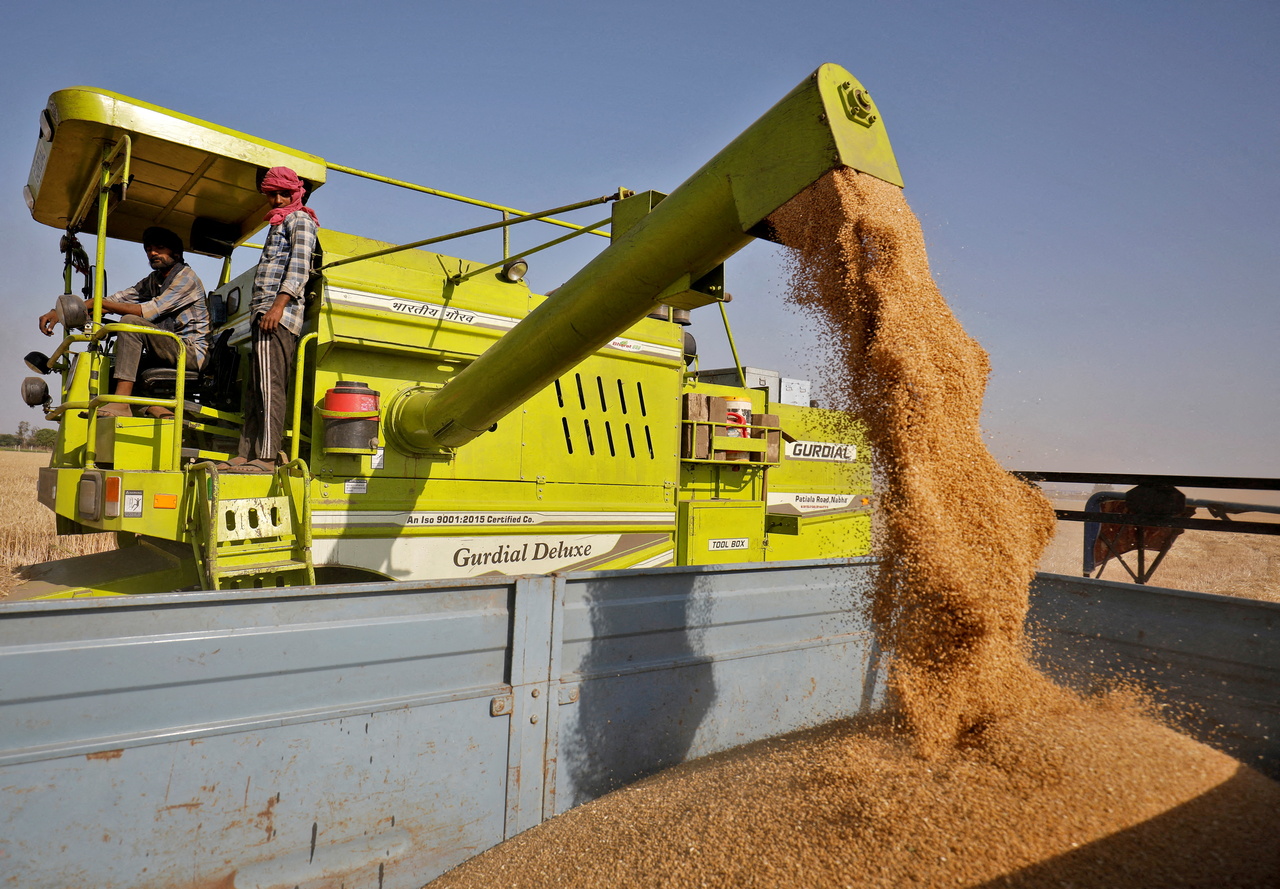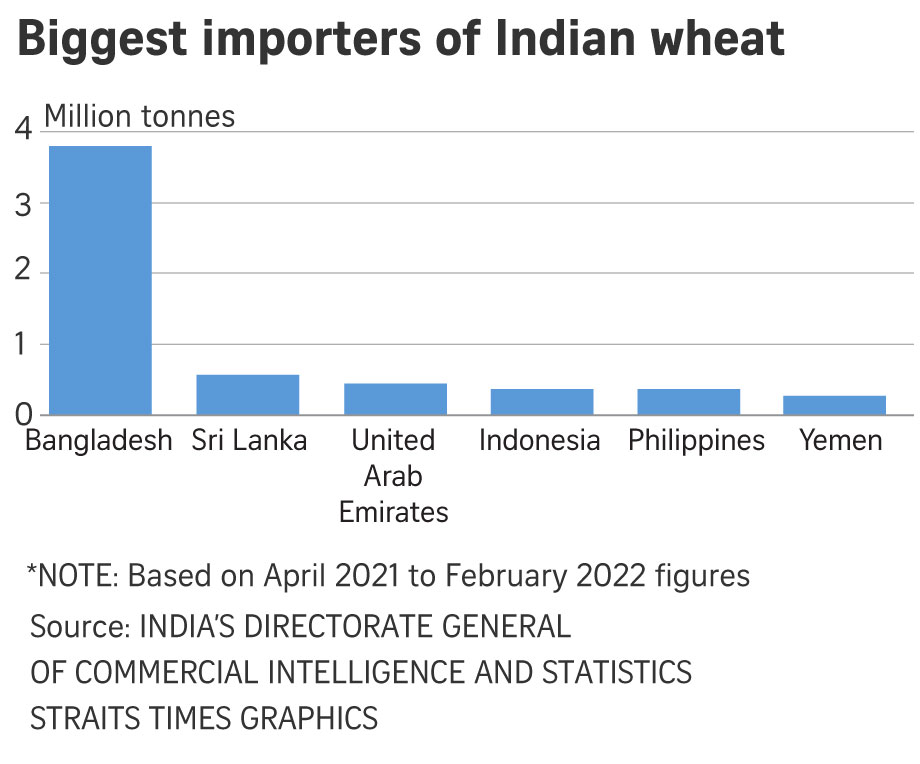India bans wheat exports as food security comes under threat
Sign up now: Get insights on Asia's fast-moving developments

Shipments of wheat are allowed for letters of credit that have already been issued.
PHOTO: REUTERS
MUMBAI (BLOOMBERG) - India prohibited wheat exports that the world was counting on to alleviate supply constraints sparked by the war in Ukraine, saying that the food security of the nation is under threat.
Exports will still be allowed to countries that require wheat for food security needs and based on the requests of their governments, India’s Directorate General of Foreign Trade said in a notification dated May 13. All other new shipments will be banned with immediate effect.
Food secretary Sudhanshu Pandey said at a media briefing on Saturday (May 14) that higher local wheat prices prompted the ban, and that costs are likely to fall after the move.
The policy will allow some supplies to be diverted to the needy and vulnerable people across the world, commerce secretary B.V.R. Subrahmanyam said at the same event.
The decision to halt wheat exports highlights India’s concerns about high inflation, adding to a spate of food protectionism since the war started.
India is a crucial supplier of wheat to its neighbours, according to The Hindu newspaper.
Apart from Afghanistan which recently received large consignments of wheat from India on humanitarian grounds, Bangladesh is another big importer wheat.
India produced around 7 million tonnes of wheat during the financial year 2021-2022 (April 1, 2021 to March 31, 2002) and out of that, nearly 50 per cent was imported by Bangladesh.
In 2020, Indian wheat made up 5.8 per cent of Singapore’s total wheat flour imports, Business Times reported.
According to UN Comtrade data, Singapore imports between 200,000 and 250,000 tons of wheat and 100,000 to 120,000 tons of wheat flour annually. But not from Russia or Ukraine. Australia, the United States and Canada are the top 3 sources of wheat for Singapore.
Traders predicted chaotic trading on the international wheat markets when they open at the start of next week as India's ban would be a blow to buyers looking for wheat supplies, said the Financial Times.
“It’s an absolute bombshell,” said Mr Swithun Still, a grain trader based in Switzerland. “There will be panic on the wheat futures markets when they open,” he added.

Governments around the world are seeking to ensure local food supplies with agriculture prices surging.
Indonesia has stopped palm oil exports, while Serbia and Kazakhstan imposed quotas on grain shipments.
Curbing exports would be a hit to India’s ambition to cash in on the global wheat rally after the war upended trade flows out of the Black Sea breadbasket region.
Importing nations have looked to India for supplies, with top buyer Egypt recently approving the South Asian nation as an origin for wheat imports.
German Agriculture Minister Cem Oezdemir said he and his Group of Seven counterparts had discussed “with concern” on Saturday both Indonesia’s decision to limit exports of palm oil and India’s move to halt wheat exports.
“If we all started imposing these export limits, or even closed down markets, that just makes the crisis worse,” Mr Oezdemir said at a news conference in Stuttgart. “It also hurts India itself and the farmers there because of course it means a roller-coaster ride for prices.”
“We now have an environment with another supplier removed from contention in global trade flows,” said Mr Andrew Whitelaw, a grains analyst at Melbourne-based Thomas Elder Markets, adding that he’s been skeptical about the high volumes expected from India.
“The world is starting to get very short of wheat,” Mr Whitelaw said.
At present, the US winter wheat is in poor condition, France’s supplies are drying out and Ukraine’s exports are stymied.
Bloomberg News reported earlier this month that a record-shattering heat wave has damaged wheat yields across the South Asian nation.
Shipments with irrevocable letters of credit that have already been issued will still be allowed, according to the latest notification.
Traders have contracted to export 4.5 million tons so far in 2022-23, the food ministry said. Turkey has also given approval to import Indian wheat , it said.
After the war hampered logistics in the Black Sea region, which accounts for about a quarter of all wheat trade, India has tried to fill the vacuum.
The country targeted to export a record 10 million tons in 2022-23. But hundreds of acres of wheat crops were damaged during India’s hottest March on record, causing yields to potentially slump by as much as 50 per cent in some pockets of the country, according to a Bloomberg survey.


